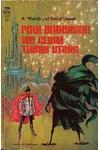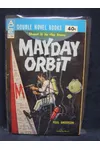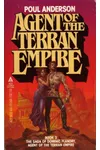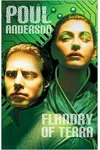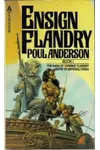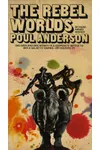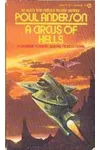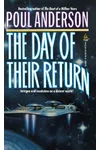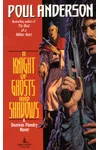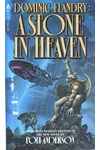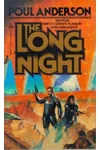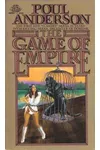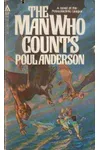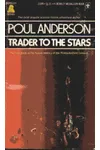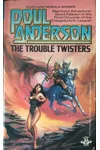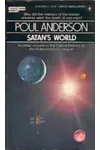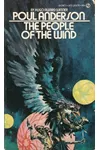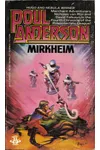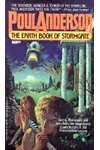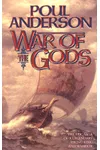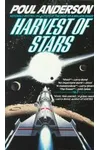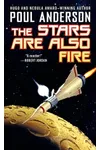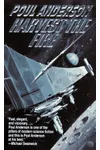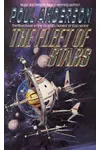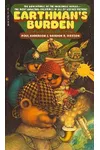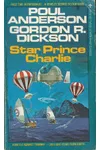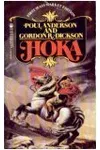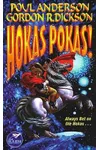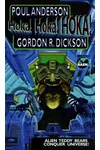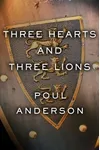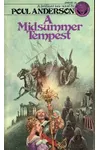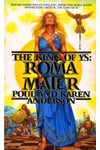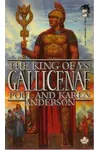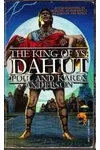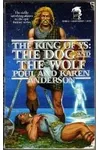Picture an American storyteller who spun galaxies, time travel, and political intrigue into unforgettable tales—meet Poul Anderson! Born in 1926, this science fiction titan penned over 100 novels and short stories, earning Hugo, Nebula, and Prometheus awards. His work, blending hard science with philosophical depth, made him a cornerstone of the genre’s golden age.
With a knack for crafting worlds as vivid as they were thought-provoking, Anderson’s stories like the Harvest of Stars series captivated readers. Let’s dive into the life and legacy of this sci-fi legend!
The Making of Poul Anderson
Poul Anderson was born on November 25, 1926, in Bristol, Pennsylvania, to Scandinavian parents. His early years were steeped in Norse mythology and literature, sparking a lifelong love for storytelling. After earning a physics degree from the University of Minnesota in 1948, Anderson turned to writing, blending his scientific knowledge with narrative flair. His first story, Tomorrow’s Children, appeared in 1947, marking the start of a prolific career.
Influenced by authors like Robert A. Heinlein and the vibrant sci-fi pulp scene, Anderson honed a style that married rigorous science with human drama. His early work in magazines like Astounding Science Fiction set the stage for his rise as a genre giant.
Poul Anderson’s Unforgettable Stories
Anderson’s bibliography is a treasure trove of science fiction. His Harvest of Stars series (1993–1995) stands out, weaving artificial intelligence, interstellar exploration, and libertarian themes into a gripping saga. The story follows pilot Anson Guthrie’s consciousness, uploaded into a computer, as he navigates a future of corporate control and human survival.
Another gem, The High Crusade (1960), showcases Anderson’s playful side. This Hugo-nominated novel imagines medieval Englishmen hijacking an alien spaceship, blending historical humor with sci-fi adventure. Time Patrol (1960), a collection of stories about a time-traveling agency, highlights his knack for exploring history’s what-ifs with meticulous detail. His novel Tau Zero (1970) pushes relativistic physics to the extreme, following a starship crew hurtling through an accelerating universe.
Anderson’s style was grounded in scientific plausibility, yet rich with philosophical questions about freedom, identity, and humanity’s place in the cosmos. His characters—whether knights, astronauts, or AIs—grappled with moral dilemmas, making his stories resonate across decades.
Why Poul Anderson Matters
Poul Anderson’s influence on science fiction is immense. His blend of hard science and political nuance inspired authors like Larry Niven and Vernor Vinge. He helped define the genre’s golden age, alongside contemporaries like Isaac Asimov, by pushing boundaries with speculative yet believable worlds. His libertarian leanings, evident in works like Harvest of Stars, also earned him a dedicated following among readers who valued his exploration of individual liberty.
Anderson’s awards—seven Hugos, three Nebulas, and a Prometheus Hall of Fame induction—reflect his impact. Beyond accolades, his ability to make readers ponder humanity’s future while entertaining them with swashbuckling tales ensures his stories endure.
About Poul Anderson
- Born: November 25, 1926, Bristol, Pennsylvania
- Died: July 31, 2001
- Key Works: Harvest of Stars, The High Crusade, Tau Zero, Time Patrol
- Awards: 7 Hugo Awards, 3 Nebula Awards, Prometheus Hall of Fame
Ready to explore new worlds? Grab Harvest of Stars or The High Crusade and dive into Poul Anderson’s thrilling sci-fi adventures!
